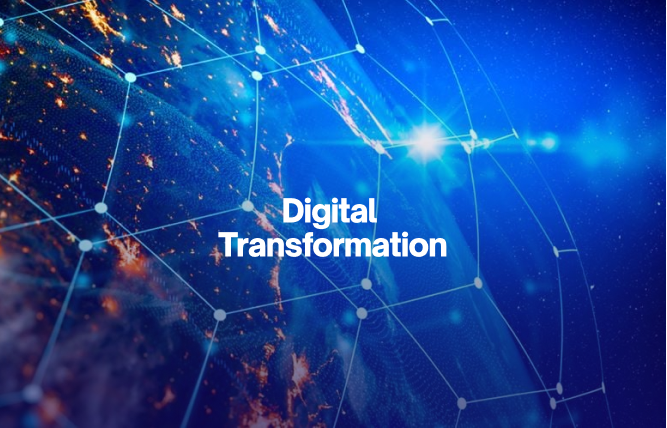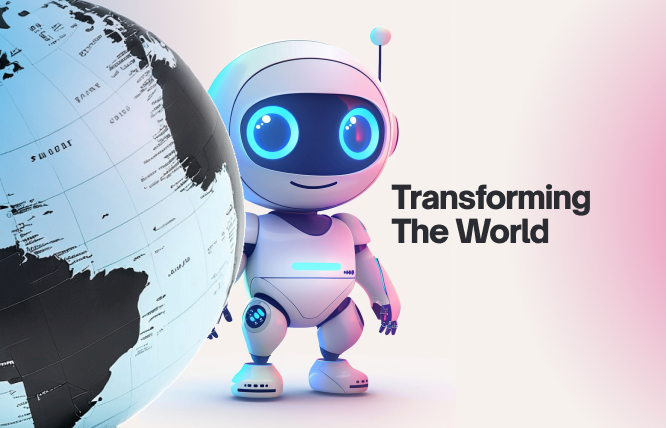Introduction
How digital transformation is reshaping businesses? This is a question with a fascinating answer. By 2025, digital transformation is set to revolutionize how businesses operate, boosting innovation, enhancing customer experiences, improving efficiency, and sharpening their competitive edge. However, businesses must take a good look at the associated challenges, such as data security, talent shortage, and costs. Always remember that a successful digital transformation demands a strategic approach and investment in emerging technologies.
Digital transformation integrates digital technology into every business area to improve innovation, efficiency, and customer experience. Looking at 2025, it is evident that digital transformation is more critical than ever for businesses since this will allow them to stay competitive and adjust to the evolving market conditions.
Truly, how digital transformation is reshaping businesses is something worthy of your interest.
| Trend | Definition |
Internet of Things (IoT) | The network of connected devices that attain and exchange data |
Artificial Intelligence (AI) | The ability of machines to do tasks that usually require human intelligence |
Big Data Analytics | The process of analysing large datasets to identify trends and patterns |
Cloud Computing | The delivery of computing services throughout the internet |
Cybersecurity | The protection of computer systems and networks from cyberattacks |
Any business interested in digital business transformation should take a look at a host of concepts, such as agile development for digital transformation and AI and machine learning in digital transformation.
Influence of Digital Transformation on Businesses
Digital transformation is making a huge impact on businesses across industries. Let’s look at some key benefits that it can offer:
More Productivity and Efficiency: Digital technologies can streamline processes, automate tasks, and decrease costs.
Better Customer Experience: Businesses can create personalised experiences for their customers and improve customer satisfaction.
Competitive Advantage: Businesses that adopt digital transformation will have a competitive advantage over competing forces.
Increased Innovation: Businesses can develop new products and/or services and stay a step ahead of the rest.
Additionally, many businesses that are looking to make use of custom cloud application development and are interested in the services of a Google cloud platform expert or perhaps AWS consulting services should talk to the relevant expert.
Opportunities and Challenges of Digital Transformation
Before going deep into how digital transformation is reshaping businesses, businesses should look into the transformation’s challenges and opportunities. Let’s go through the key challenges:
Talent Shortage: You may see a shortage of skilled workers who can assist businesses in applying digital transformation.
Cost: The application of digital transformation can be a costly affair.
Data Privacy and Security: Businesses should be vigilant to safeguard their customer’s data and prevent cyberattacks.
The challenges may be there, but digital transformation offers plenty of opportunities for businesses. Let’s look at the key opportunities:
Improved Customer Loyalty: Businesses that offer a good quality customer experience via digital transformation can improve customer loyalty.
New Revenue Streams: Digital transformation will allow businesses to make new revenue streams, such as offering new digital services and selling data.
Sustainable Growth: Digital transformation will assist businesses in attaining sustainable growth by decreasing costs and improving efficiency.
To tackle challenges, businesses must emphasise a digital transformation roadmap. They may require the assistance of a microservices design and development service or someone who offers Kubernetes management services.
Future Outlook for Digital Transformation
Undoubtedly, digital transformation has a bright future. Businesses across industries are embracing this change, whether by leveraging CI/CD pipelines for cloud-based applications or exploring containerization and microservices. Emerging technologies like virtual reality (VR), augmented reality (AR), and blockchain are set to further revolutionize how businesses operate.
However, it’s crucial for businesses to consider the ethical implications of digital transformation. For example, AI systems may carry biases, and there’s a growing concern about job displacement. Addressing these challenges responsibly will be key to making the most of digital transformation.
Concluding Remarks
By 2025, embracing digital transformation will be essential for businesses aiming to enhance customer service, boost efficiency, drive innovation, and gain a competitive edge.
However, alongside these benefits, it’s equally important to address the associated challenges, such as data security and talent shortages, and to consider ethical implications, like AI bias and job displacement.
If your business is ready to embrace digital transformation, FuturByte is here to help. As a leading DevOps solutions company, we provide top-tier enterprise DevOps transformation services tailored to your needs. Contact us today to start your journey toward success.
Frequently Asked Questions
In digital transformation, the integration of digital technology is performed into all business areas to improve innovation, efficiency, and customer experience. This is important because in 2025, it has become more important than ever for businesses to stay competitive and adapt to rapidly changing market conditions.
This future will likely involve further advancements in automation, artificial intelligence, and machine learning. This means more personalised and innovative experiences for customers.
Containerisation is important for digital transformation because it allows businesses to develop, deploy, and scale applications very efficiently and securely across various environments, decreasing costs and accelerating innovation.
Have questions or feedback?
Get in touch with us and we‘l get back to you and help as soon as we can!




